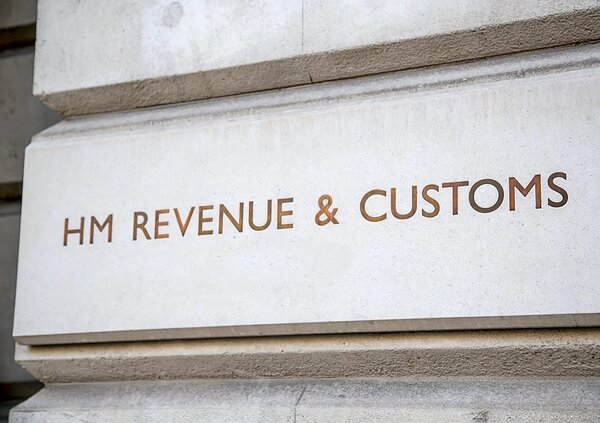Let’s Break This Down Together...
Dreaming of working remotely while exploring the world, but unsure how your UK taxes fit into the picture?
Being a digital nomad comes with freedom, but also a fair bit of tax confusion. From residency rules to double tax treaties and what income gets taxed where, it’s a lot to wrap your head around.
Don’t worry, this guide will walk you through everything step by step. Whether you’re coding from Croatia or writing blogs in Bali, we’ll help you understand your UK tax obligations and how to plan smartly while living abroad. Let’s get into it!
What Are Digital Nomad Taxes?
When you work remotely from different countries, your tax obligations don’t simply disappear. Digital nomad taxes refer to what you owe to HMRC while earning money abroad.
UK tax rules follow you based on your residency status, not your physical location. This means you might still have UK tax responsibilities even while sipping coconuts in Bali.
If you are working remotely, you may also need to pay taxes in the countries where you are staying, depending on local laws and how long you remain there.
The Statutory Residence Test (SRT) is HMRC’s way of determining if you remain a UK tax resident. It examines how many days you spend in the UK and your connections to the country.
Most digital nomads still need to file UK tax returns while working internationally. However, you may qualify for certain exemptions depending on your specific situation.
Many countries have their own income tax rules that digital nomads must consider when working remotely, so it’s important to understand both UK and foreign requirements.
Understanding Self Employment as a Digital Nomad
For many digital nomads, self-employment is the key to location independence. If you’re working for yourself, whether as a freelancer, consultant, or running your own online business, you’re responsible for managing your own tax obligations.
This means you must report all your foreign earned income and claim any relevant exclusions or credits on your tax return.
Keeping detailed records of your income and expenses is essential, as self employed digital nomads are required to pay self employment taxes, which cover contributions similar to Social Security and Medicare.
Understanding the foreign earned income exclusion can help reduce your tax bill if you qualify, but you’ll need to meet specific criteria and document your time spent abroad.
Navigating self employment taxes and international tax laws can be complex, especially when working across multiple countries. Consulting a tax professional who understands the digital nomad lifestyle can help you stay compliant, optimise your tax situation, and avoid costly mistakes.

Self Employment Taxes for UK Digital Nomads
If you’re a UK digital nomad and self employed, you’ll need to pay self employment taxes, which include Class 4 National Insurance contributions.
These payments are crucial, they fund your entitlement to state pensions and other UK benefits, even while you’re living abroad.
To stay on the right side of UK tax laws, you must register as self employed with HMRC and file a Self Assessment tax return every year.
Depending on your circumstances, you might also be able to claim tax benefits like the foreign earned income exclusion, which can help reduce your overall tax bill if you meet the necessary conditions.
Failing to meet your tax obligations can result in steep penalties, so it’s important to understand the rules around self employment taxes and pay self employment taxes on time.
If you’re unsure about your responsibilities, seeking advice from a tax professional can help you navigate the complexities and keep your digital nomad journey stress-free.
The Statutory Residence Test Explained
The SRT has some clear rules. If you spend fewer than 16 days in the UK during the tax year, you’re automatically considered non-resident for tax purposes.
On the flip side, if you spend 183 days or more in the UK, you’re automatically a UK resident. This means you’re subject to UK taxes on your worldwide income.
If you fall between these thresholds, HMRC looks at your “sufficient ties” to the UK. These ties include family, accommodation, and work connections, such as being an employee working remotely for a UK or international employer.
Keep detailed records of your travel dates. HMRC might ask for proof of your whereabouts, especially if you’re claiming non-resident status. Maintaining accurate records is also essential for tax compliance and ensuring you adhere to relevant tax law when determining your residency status.
Your pattern of presence over multiple tax years also matters. The more ties you have to the UK, the fewer days you can spend there before becoming tax resident.
Tax Implications of "Split Year" Treatment
Sometimes the tax year can be split between resident and non-resident periods. This is called “split year treatment” and can be hugely beneficial for digital nomads.
To qualify, you must meet specific conditions, such as leaving the UK to work full-time abroad. Alternatively, becoming resident in another country can also trigger this status.
Living in a foreign country can affect how your income earned is taxed, as you may become liable for taxes both in the UK and the foreign country depending on your residency and local tax laws.
During your non-resident periods, income earned in a foreign country may not be taxed by the UK, depending on your residency status. This could significantly reduce your overall tax bill.
However, UK-source income, like rental income from a UK property, remains taxable in the UK. This applies regardless of your residence status.
Getting split year treatment isn’t automatic. You need to claim it on your tax return and provide evidence that you meet the conditions.

Social Security Tax Implications for UK Digital Nomads
Social security tax is another important consideration for UK digital nomads. The UK has social security agreements, known as totalisation agreements, with several foreign countries. These agreements are designed to help you avoid double taxation on your social security contributions when working abroad.
If you’re working in a country that has a totalisation agreement with the UK, you may be exempt from paying social security taxes in both countries, but you’ll still need to pay self employment taxes in the UK. Understanding your tax liability under these agreements is crucial, as the rules can vary depending on where you’re living and working.
To ensure you’re meeting your tax obligations and not paying more than you need to, it’s wise to consult a tax advisor who can explain the tax implications of your specific situation. This will help you avoid double taxation, stay compliant with tax laws, and make the most of your digital nomad lifestyle.
Tax Forms and Filing Requirements Abroad
When you’re earning income in foreign countries, staying on top of tax forms and filing requirements is essential. As a digital nomad, you may need to file a personal tax return in your country of residence, as well as in any other country where you have tax obligations.
Common tax forms for digital nomads include the personal tax return, forms for claiming the foreign earned income exclusion, and the foreign tax credit.
If you hold foreign financial assets or have a foreign bank account, you may also need to file additional forms such as the Report of Foreign Bank and Financial Accounts (FBAR) or the Statement of Specified Foreign Financial Assets.
Filing requirements and deadlines can differ widely between countries, so it’s important to research the rules wherever you work.
Consulting a tax professional can help you navigate these requirements, ensure you’re compliant with all relevant tax laws, and avoid penalties for late or incorrect filings.
Double Taxation Agreements and Relief
The UK has tax treaties with over 130 countries to prevent you from paying tax twice on the same income. These are called Double Taxation Agreements (DTAs).
After considering tax treaties, it's important to note that digital nomads with foreign assets or foreign bank accounts may have additional reporting requirements. For example, U.S. persons may need to file reports such as the FBAR for foreign bank accounts and FATCA Form 8938 for foreign assets.
If you pay tax in another country, you may claim Foreign Tax Credit Relief.
This offsets foreign tax against your UK tax liability, preventing double taxation. Understanding your obligations for paying taxes and the rules around income taxes in both the UK and the country where you are working is essential to avoid mismanaging your tax responsibilities.
Some countries now offer specific digital nomad visas with tax advantages. Places like Croatia, Estonia, and Portugal have schemes designed to attract remote workers.
However, only a few countries provide such favorable tax regimes, and some countries roll out these policies specifically to appeal to digital nomads.
Tax treaty benefits aren’t automatically applied. You need to actively claim them on your tax return and sometimes complete additional forms.
Different types of income may be treated differently under tax treaties. Employment, self-employment, and investments each have specific rules to consider.

Practical Tax Planning for Digital Nomads
Plan your travels with the UK tax year in mind (April 6 to April 5). Strategic timing of long trips can help you meet non-resident criteria.
Keep a detailed diary of where you are each day. Apps that track your location can provide valuable evidence if HMRC questions your residency status. Many countries use tests like the physical presence test and bona fide residence test to determine tax residency, so accurate records are essential.
Research local tax rules before working from a new country. Many foreign countries use residence based taxation, meaning if you earn money and stay long enough, you may become a tax resident and owe local income taxes. Some places may consider you tax resident after just a few months.
I once spent three months working from Portugal, unaware that I was approaching their tax residency threshold. A last-minute flight saved me from a complicated tax situation.
Separate your income sources clearly in your accounts. Knowing what’s UK-source versus foreign-earned makes tax filing much simpler.
Consider setting up a system to save for taxes as you earn. This helps avoid nasty surprises when tax bills come due in multiple countries.
Common Digital Nomad Tax Mistakes
Many digital nomads wrongly assume they’re not UK tax resident simply because they travel frequently. The SRT is more complex than just counting days.
Failing to declare worldwide income on your UK tax return is a common mistake. This can lead to penalties, especially as HMRC gains access to international financial data. Tax authorities in different countries are increasingly sharing information to enforce tax compliance, making it harder to hide undeclared income.
Not researching local tax obligations in countries you work from can create problems. Some places require tax filings even for short stays.
Poor record-keeping is a major pitfall. Without evidence of your location throughout the tax year, defending your residency status becomes difficult.
Many forget about National Insurance contributions while abroad. These affect your UK state pension and benefits, so consider making voluntary contributions.
Final Thoughts
Managing your taxes as a digital nomad requires planning and awareness. You need to understand both UK and international rules to stay compliant.
Professional tax advice tailored to your specific situation is often worth the investment. This is especially true when first transitioning to a nomadic lifestyle.
Remember that tax rules change frequently. Staying informed about HMRC's latest guidance is essential for avoiding unexpected tax bills.
At Pie, we can help you file your SA109 Non-Residency tax return directly with HMRC.











